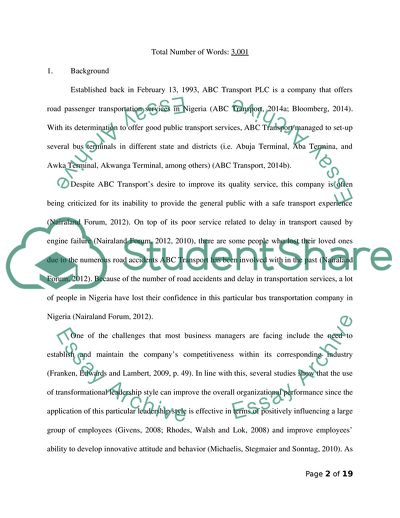Cite this document
(Evaluation of the mediating role of learning style on the impact of Research Proposal, n.d.)
Evaluation of the mediating role of learning style on the impact of Research Proposal. https://studentshare.org/human-resources/1816612-evaluation-of-the-mediating-role-of-learning-style-on-the-impact-of-transformational-leadership-on-performance-a-case-study-of-training-and-development-department-of-abc-transport-company-nigeria-plc
Evaluation of the mediating role of learning style on the impact of Research Proposal. https://studentshare.org/human-resources/1816612-evaluation-of-the-mediating-role-of-learning-style-on-the-impact-of-transformational-leadership-on-performance-a-case-study-of-training-and-development-department-of-abc-transport-company-nigeria-plc
(Evaluation of the Mediating Role of Learning Style on the Impact of Research Proposal)
Evaluation of the Mediating Role of Learning Style on the Impact of Research Proposal. https://studentshare.org/human-resources/1816612-evaluation-of-the-mediating-role-of-learning-style-on-the-impact-of-transformational-leadership-on-performance-a-case-study-of-training-and-development-department-of-abc-transport-company-nigeria-plc.
Evaluation of the Mediating Role of Learning Style on the Impact of Research Proposal. https://studentshare.org/human-resources/1816612-evaluation-of-the-mediating-role-of-learning-style-on-the-impact-of-transformational-leadership-on-performance-a-case-study-of-training-and-development-department-of-abc-transport-company-nigeria-plc.
“Evaluation of the Mediating Role of Learning Style on the Impact of Research Proposal”. https://studentshare.org/human-resources/1816612-evaluation-of-the-mediating-role-of-learning-style-on-the-impact-of-transformational-leadership-on-performance-a-case-study-of-training-and-development-department-of-abc-transport-company-nigeria-plc.


